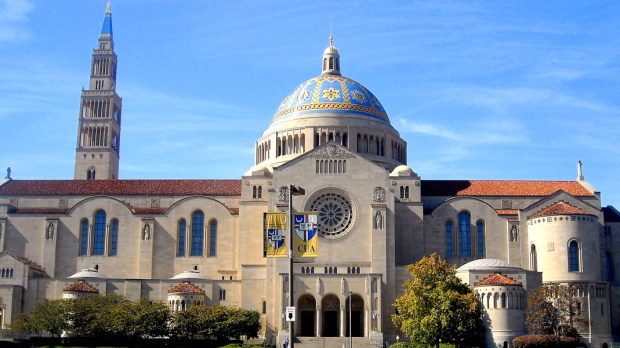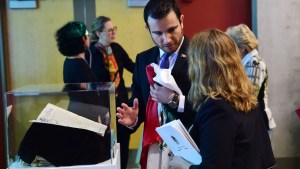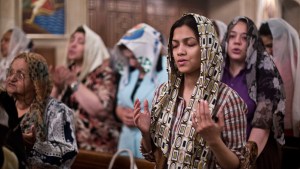In a move that strengthens the bonds between Catholic and Coptic Orthodox educators, the Catholic University of America (CUA) has awarded an honorary degree to Metropolitan Serapion. The November 5 ceremony also included the signing of a memorandum of understanding between CUA and St. Athanasius and St. Cyril Coptic Theological School (ACTS) in Los Angeles.
The degree was bestowed by CUA’s President Dr. Peter Kilpatrick, who called the ceremony a “historic moment.” He noted that the Catholic Church and the Coptic Orthodox Church have grown much closer over the last 50 years. Meanwhile, the friendship between CUA and ACTS is made all the easier by CUA’s wide class selection, which includes courses on both Early and Eastern Christian theology, subjects of great importance to ACTS.
CUA reports that President Kilpatrick explained the honorary degree was awarded to Metropolitan Serapion for “his leadership, his vision for ensuring clergy and laity have access to the best resources so they may be deeply formed in the faith, and his commitment to strengthening the bonds between our Churches.”
“Today, here in the National Shrine next to our campus, we are renewing the relationship between our two institutions of learning and deepening the bonds of understanding, theological collaboration, and formation of future generations,” he said before presenting the honorary degree.
The ceremony was held in the Upper Church of the Basilica of the National Shrine of the Immaculate Conception, which stands on the campus of CUA. More than 250 Orthodox Coptic bishops, clergy, and laity were present as Metropolitan Serapion spoke on the importance of ecumenical outreach between the Catholic Church and Orthodox Churches. Afterward, at a luncheon, the metropolitan said that he felt “at home” at CUA.
The memorandum formalizes a relationship between the two schools that will lead to collaborations at the doctoral level, which could include joint initiatives going forward.
CUA has a plethora of offerings that could be of interest to the Coptic Orthodox, including a Center for the Study of Early Christianity, an Institute for Christian Oriental Research, and an Institute for the Study of Eastern Christianity.




